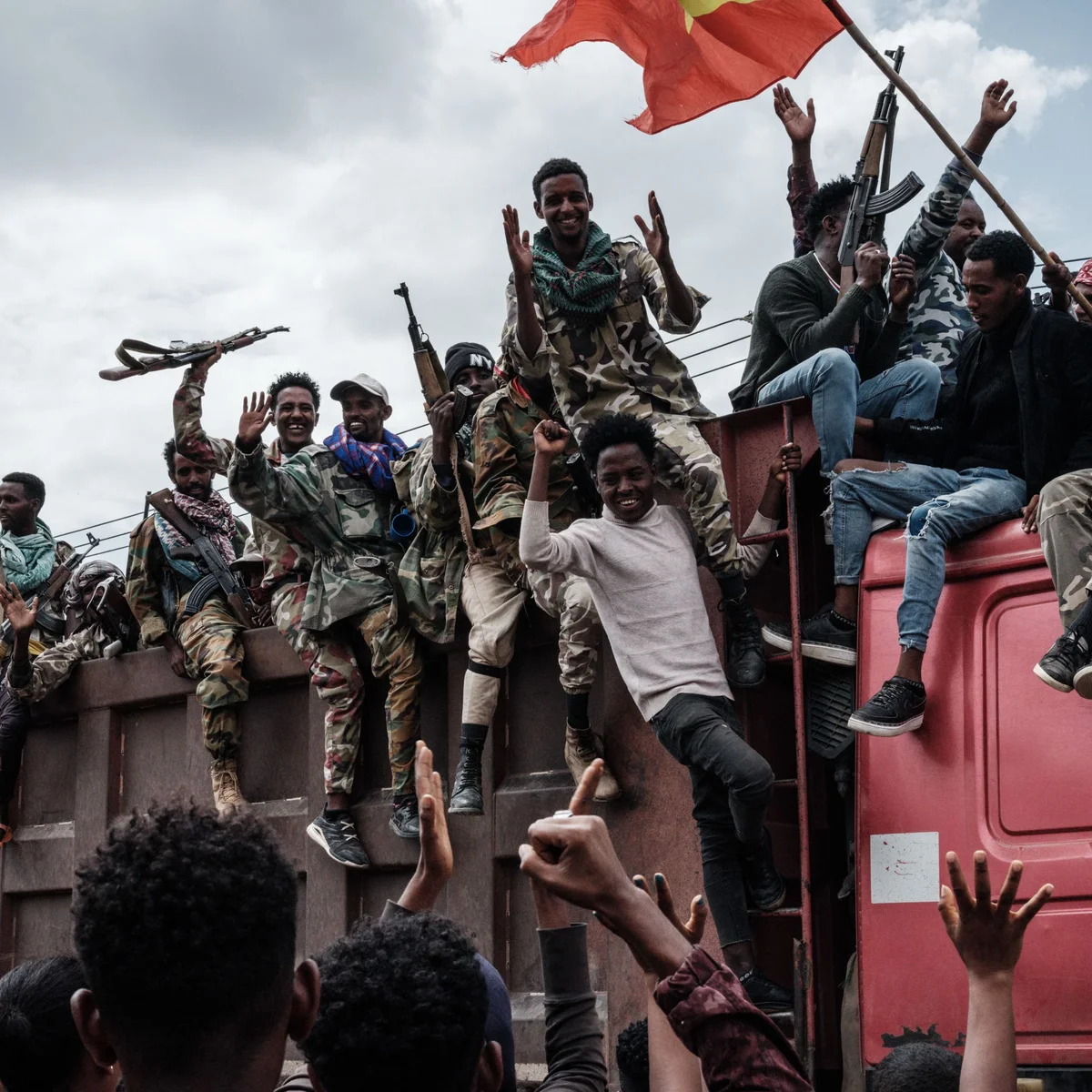Ethiopia has accused neighbouring Eritrea of collaborating with an opposition faction in preparation for a new military offensive, heightening fears of renewed conflict in the Horn of Africa. In a letter addressed to United Nations Secretary-General Antonio Guterres, Ethiopian Foreign Minister Gedion Timothewos alleged that Eritrea is working in concert with a hardline faction of the Tigray People’s Liberation Front (TPLF) to destabilize Ethiopia and provoke a regional crisis.
The letter, seen by AFP and widely shared across Ethiopian social media platforms, claims that Eritrea and elements within the TPLF are “funding, mobilizing, and directing armed groups” in Ethiopia’s Amhara region, where local militias known as Fano have been engaged in fierce battles with the federal army. “The collusion between the Eritrean government and the hardliner faction of the TPLF has become more evident over the past few months,” Gedion wrote, adding that the two sides are “actively preparing to wage war against Ethiopia.”
Eritrea has yet to officially respond to the accusations, but relations between the two nations — once allies — have grown increasingly strained. Ethiopia’s recent push to regain access to the Red Sea, which it lost when Eritrea gained independence in 1993, has been a major source of tension. The renewed maritime ambitions of Addis Ababa have raised fears in Asmara that Ethiopia could attempt a military incursion to seize Eritrean ports along the strategic Red Sea coastline.
If confirmed, Gedion’s allegations would mark a dramatic reversal in relations between the two countries. After years of hostility that included a brutal border war from 1998 to 2000, which claimed tens of thousands of lives, the nations experienced a brief thaw under Ethiopian Prime Minister Abiy Ahmed, who signed a peace accord with Eritrean President Isaias Afwerki in 2018. The rapprochement earned Abiy the Nobel Peace Prize the following year. However, since the end of the Tigray War in 2022, the relationship has soured once again, with both sides trading accusations of interference and aggression.
The alleged partnership between Eritrea and a TPLF faction led by Debretsion Gebremichael — which governs Ethiopia’s northern Tigray region — signals a complex new alignment in Ethiopia’s fractious political landscape. The Debretsion faction has accused Abiy’s government of failing to implement key aspects of the 2022 Pretoria Peace Agreement, while another TPLF faction, headed by Getachew Reda, maintains a fragile working relationship with Addis Ababa. Eritrea, which fought alongside Ethiopian forces against the TPLF during the civil war, is now accused of shifting allegiance to Debretsion’s faction in an effort to undermine Abiy’s rule.
Adding to the volatility, Ethiopia’s Amhara region remains engulfed in violence. The once pro-government Fano militias, who fought alongside federal forces against the TPLF, have turned against the central government, accusing it of repression and ethnic persecution. In recent months, the Fano movement has expanded its operations and openly vowed to topple Abiy’s administration.
According to reports from the Addis Standard, Ethiopia’s foreign ministry letter alleged that Eritrea and the TPLF hardliners supported Fano’s recent attempt to capture the strategic town of Woldiya in September, with TPLF commanders and fighters directly participating in the operation. The document further accused Eritrea of pursuing a campaign to destabilize Ethiopia out of fear that the country’s renewed maritime ambitions could threaten Asmara’s sovereignty.
Ethiopia’s efforts to regain access to the Red Sea have been a key element of Abiy’s regional strategy since October 2023. The landlocked nation relies heavily on Djibouti for port access, a dependence Abiy has described as unsustainable. Addressing parliament on Monday, Ethiopia’s President Taye Atske Selassie underscored the strategic importance of maritime access, declaring that “the Red Sea and River Nile are great water resources essential to our country’s existence.”
The remarks triggered a sharp rebuke from Eritrea’s Information Minister Yemane Gebremeskel, who dismissed the Ethiopian rhetoric as “too crass and pathetic to sell.” He accused Ethiopia’s leadership of harboring a “bizarre obsession” with the Red Sea and the Nile, calling it “mind-boggling by all standards.”
The escalating war of words has raised concerns among diplomats and regional observers that the fragile peace in the Horn of Africa could collapse into a new confrontation. Both nations are struggling with internal divisions and economic pressures — Ethiopia with lingering ethnic conflicts and post-war recovery, and Eritrea with isolation and militarization.
Analysts warn that another Ethiopia-Eritrea conflict could have devastating consequences for regional stability, disrupting trade routes, displacing civilians, and complicating international efforts to maintain peace in the volatile Horn. As tensions rise over the Red Sea, a region already fraught with global competition and maritime insecurity, the stakes for both nations and the broader region have never been higher.
The latest developments underscore how quickly alliances can shift in the Horn of Africa, where historical rivalries, geopolitical ambitions, and ethnic tensions continue to shape the future of two nations once hailed as symbols of reconciliation.














Leave a comment